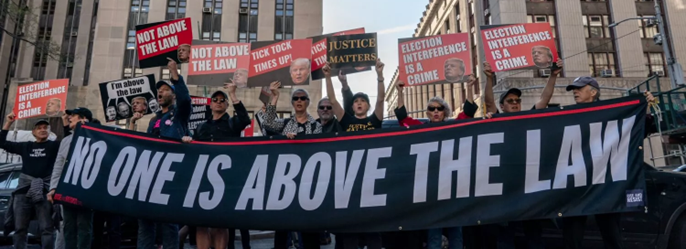Lisa Hilbink, Judges beyond Politics in Democracy and Dictatorship: Lessons from Chile. Cambridge: Cambridge University Press, 2007. Summary: Why did formerly independent Chilean judges, trained under and appointed by democratic governments, facilitate and condone the illiberal, …
Archive
Graver (2014), Judges Against Justice: On Judges When the Rule of Law is Under Attack.
Hans Petter Graver, Judges Against Justice: On Judges When the Rule of Law is Under Attack. New York City: Springer, 2014. Summary: This book explores concrete situations in which judges are faced with a legislature and …
Ginsburg (2008), “Administrative Law and the Judicial Control of Agents in Authoritarian Regimes.”
Tom Ginsburg. “Administrative Law and the Judicial Control of Agents in Authoritarian Regimes,” in The Politics of Courts in Authoritarian Regimes. Edited by Tom Ginsburg and Tamir Moustafa, pp. 58-72. Cambridge: Cambridge University Press, 2008. …
Cheesman (2011), “How an Authoritarian Regime in Burma Used Special Courts to Defeat Judicial Independence,”
Nick Cheesman, “How an Authoritarian Regime in Burma Used Special Courts to Defeat Judicial Independence.” Law & Society Review, vol. 45, no. 4 (2011): 801–30. Summary: Why do authoritarian rulers establish special courts? One view …
Bowen (2013), “Judicial Autonomy in Central America: A Typological Approach,”
Rachel E Bowen, “Judicial Autonomy in Central America: A Typological Approach.” Political Research Quarterly, vol. 66, no. 4 (2013): 831–42. Summary: Judicial autonomy from societal actors is argued herein to be a critical aspect of the …
Basabe-Serrano (2015), “Informal Institutions and Judicial Independence in Paraguay, 1954-2011”
Santiago Basabe-Serrano, “Informal Institutions and Judicial Independence in Paraguay, 1954-2011.” Law & Policy, vol. 37, no. 4 (2015): 350-378. Summary: This article explains how informal institutions have prevented the emergence of autonomous judges in Paraguay between …
Trump Judicial Nominee Accused of Urging Defiance of Court Orders
A whistleblower complaint made public this week accuses Emil Bove, President Trump’s nominee to the federal appeals court, of suggesting the Justice Department should ignore court orders blocking the deportation of Venezuelan migrants. Former DOJ …
Varga (2013), “Legal Mentality as a Component of Law. Rationality Driven Into Anarchy in America”
This article critiques the mythologized self-image of lawyers as neutral experts, arguing that in the absence of broader societal consensus, their function becomes both overextended and ideologically fraught, raising urgent questions about the legitimacy and limits of legal authority in postmodern, fragmented democratic societies.
Moran (2019), “The Three Ages of Modern American Lawyering and the Current Crisis in the Legal Profession and Legal Education”
The article calls for renewed attention to the civic and justice-oriented dimensions of legal training and leadership.
Ashar (2016), “Deep Critique and Democratic Lawyering in Clinical Practice”
This article critiques mainstream legal education reform discourse for neglecting social justice values and embracing neoliberal frameworks.
